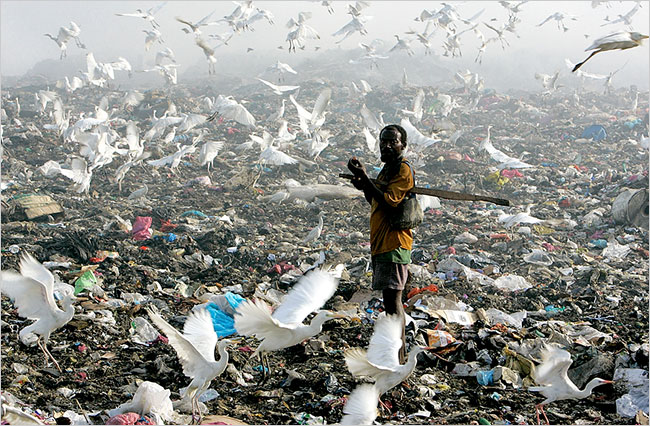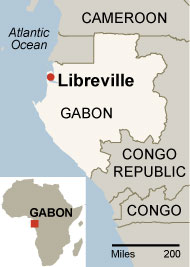| Want to send this page or a link to a friend? Click on mail at the top of this window. |
More Special Reports |
| Posted September 15, 2009 |
| International |
|
LIBREVILLE JOURNAL |
||
|
|
||
|
Underneath Palatial Skin, Corruption Rules Gabon |
||
|
||
|
DANIEL MAGNOWSKI/REUTERS |
||
| The image of Ali Bongo, the son of longtime ruler Omar Bongo, blanketed Libreville. *Related text and images: My quality of life, your quality of life | ||
|
|
|
By ADAM NOSSITER |
 |
|
REBECCA BLACKWELL/THE ASSOCIATED PRESS |
| An unidentied man foraging for food at the main dump. |
|
|
|
 |
|
|
THE NEW YORK TIMES |
| Wehaitians.com, the scholarly journal of democracy and human rights |
| More from wehaitians.com |